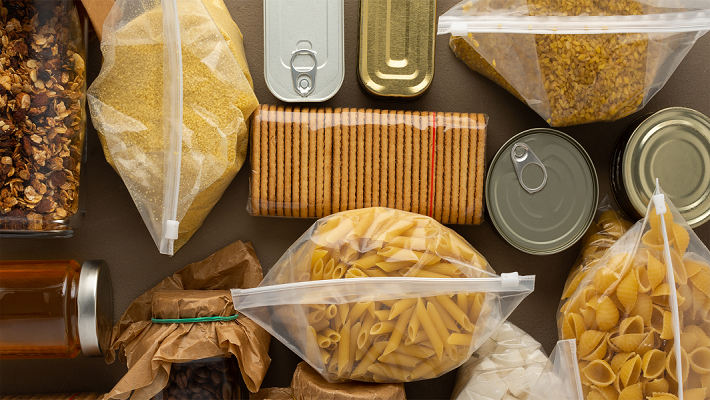- Head Office : Ruko Apartemen Serpong Green View RK3, RT01/03, Jl. Lengkong Gudang Timur Raya, Serpong, Tangerang Selatan

The kitchen is the center of activity in a home, where we prepare meals for our family and loved ones. However, despite the delicious dishes we serve, the kitchen environment can also attract pests to thrive. Insects, rodents, and even mold can easily threaten the safety and quality of food products we store at home. Therefore, it is crucial to understand the necessary steps to protect food products from pests and ensure they remain safe and high-quality in the home environment. In this article, Termigon will discuss a series of practical tips that you can apply to protect your kitchen and food storage areas from pest infestations, ensuring that every meal you serve to your family is safe, fresh, and of high quality.
Pests like insects, rodents, cockroaches, and even mold are some of the many threats that can pose serious risks to food products in the home environment. Insects such as ants and cockroaches can easily invade open or improperly sealed food, while rodents often seek shelter and food sources within the home. Additionally, mold and bacteria can grow rapidly on food stored in damp or unclean environments. These pests not only threaten food safety but can also reduce the quality, taste, and nutritional value of the food products we consume. Therefore, it is essential to know the proper cleaning and sanitation strategies to protect food products from pest infestations at home.
Tips for Protecting Food Products from Pest Intrusions:
Routine Cleaning and Kitchen Hygiene:
Waste Management and Food Storage:
Proper Food Storage:
Maintaining food safety and quality at home involves not only implementing proper preventive measures but also requires regular monitoring to detect and address problems promptly. After applying tips for protecting food products from pest interference, such as maintaining kitchen cleanliness, using appropriate storage containers, and ensuring proper food separation, it is important to continue monitoring your home environment regularly.
Routine Monitoring and Preventive Actions:
Routine Monitoring:
Quick Action:
Adopt Preventive Measures:
By conducting regular inspections of food storage areas and the kitchen, you can quickly identify early signs of pest infestations or food contamination. Once these signs are detected, take immediate preventive actions, such as cleaning affected areas and discarding contaminated food. By combining preventive tips with routine monitoring and swift action, you can ensure that food products at home remain safe, clean, and high-quality.
However, when dealing with complex or difficult problems that cannot be handled independently, consulting experts in the field is the best course of action. This also applies to addressing pest infestations at home. While some issues can be resolved with simple preventive measures, pest infestations can sometimes be complicated and require specialized handling. This is where pest control experts like Termigon play a crucial role. Termigon is an expert in pest control, equipped with in-depth knowledge of various types of pests and efficient in addressing pest issues effectively. With their experience, they can thoroughly assess the situation, determine the causes of the problem, and design appropriate handling strategies based on the specific conditions of your home. Additionally, Termigon can provide advice on additional preventive measures to prevent similar pest issues in the future. By relying on experts like Termigon, you can ensure that pest problems in your home are handled professionally and efficiently, allowing you to enjoy a clean, safe, and pest-free environment once again.